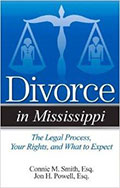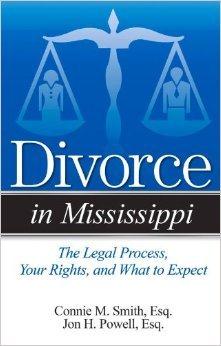REPORT FROM COUNSEL
SUMMER 2011 ISSUE
HOW TO FRANCHISE YOUR BUSINESS
You have a small successful business and you just have that feeling that it could be replicated with equal success. One traditional means of doing this would be to open more company stores on your own, but doing so obviously would take lots of capital and time, and you can only be stretched so far and still feel in control of what could be distant additional locations.
Franchising is a time‑tested alternative for expansion that, at least over the long run, should involve less of your own time and money. If all goes well, and the odds of that are certainly enhanced by getting good professional advice at each step in the process, you can expand using someone else's money, your risks will be reduced because the franchisees will take on most of the responsibilities and risks that come with opening new stores, and expansion should occur more rapidly than if you go it alone.
Franchising entails opening additional outlets by selling franchise rights to independent investors who will use your name and operating system. The franchisee will pay you, the franchisor, an initial franchise fee in exchange for the rights to open and operate a business under the franchise trademark, for training in how to operate the business, and for any other startup services. Once a franchise is up and running, the franchisee will usually also pay you a periodic royalty fee, generally 4% to 10% of the sales, for continued support, training, and other services. A critical attribute from the franchisor's vantage point is that the franchisee must provide the capital required to start the business and must assume practically all of the risks of success or failure.
Questions
Before taking the plunge into franchising, however, you should be able to answer the following questions in the affirmative; otherwise, making the best of your single location makes the most sense.
- Will your business, however well it may have done in its original location, be well received in the broader marketplace?
- It is undoubtedly true that any business that you started yourself is special to you, but does it have a special, unique quality that will appeal to the "new" public that will be introduced to the business for the first time?
- Is your business concept, including processes that will have to be taught to the franchisees, one that can be easily duplicated elsewhere?
- Succinctly put, will your business idea sell well to potential franchisees?
Ingredients for Success
You need more than an appealing business idea for a franchising plan to be successful. Here are some of the ingredients. First, you need a proven, i.e., profitable, prototype upon which the new franchises can be modeled. Second, you should have a comprehensive set of written procedures, based on how the prototype is run, that will serve as a valuable training manual for new franchisees. Third, you should have a protected trademark that will identify in the marketplace the niche that you have created for the franchises (it can take some time and expense, but it is worth the trouble). Fourth, perhaps with the help of an experienced consultant, you should create marketing materials and a marketing plan for use in securing new franchisees. In the same vein, whoever actually sells the franchises must be aware of the usually strict regulations on such sales.
Finally, and crucially, you will need a Franchise Disclosure Document (FDD) that must be prepared in accordance with the regulations in the states where the franchises will operate and that must be approved by the state agencies that regulate franchises. A typical FDD will include an outline of the offering, information on the history and résumés of the principal franchisor officers, a report on the financial preparations for the franchising, and copies of the actual franchise agreement that will be used.
Devising and implementing a plan for franchising a business is in some respects a daunting prospect. On the other hand, if you have what it takes to establish a successful business in the first place, those qualities, plus advice from experienced professionals, may allow you to cast a much wider net for your business through the franchising process. After all, practically all of the most well‑known franchises spread out from a single, original location.
DELETING COMPANY E‑MAIL
When a telecommunications company went defunct, almost literally on his way out the door, the former president and CEO of the company allegedly deleted certain e‑mails from the company's computers. When the company was placed in receivership, the receiver sued the former executive for a variety of his actions taken in connection with the collapse of the company. Among these claims was an assertion that when he deleted the e‑mails, allegedly to cover up some misconduct, the executive violated the federal Computer Fraud and Abuse Act (CFAA).
One of the executive's arguments was that the CFAA only makes it illegal to damage computers, and that the mere deletion of e‑mails could not reasonably be regarded as inflicting such damage. The federal district court hearing the case disagreed. To require something like physical harm to a computer, or even some lesser injurious action of the kind, for there to be damage would be to ignore the expansive language that Congress used in drafting the CFAA.
"Damage" is defined in the law as "any impairment to the integrity or availability of data, a program, a system, or information." Given that definition, the court concluded that even the commonplace act of deletion of data from the company computers impaired the availability of computerized data, thereby constituting damage within the meaning of the CFAA.
The executive was unable to have the case against him dismissed on this basis, but it remained for a jury to decide if he had, in fact, both deleted the e‑mails and done so without authorization. On those points, an examination of the defendant's e‑mail box on the server was enough to allow a jury to find that he had deleted the e‑mails in question.
The e‑mail box had been reduced in size by about 98%. Moreover, even the previously authorized use of a computer system may become unauthorized when an employee breaches his duty of loyalty to his employer. The executive no doubt at some point had broad authority to deal with his company e‑mails as he wished, but the pending litigation against him was replete with claims that he had been disloyal to the company in a number of different ways. If the receiver could prove such disloyalty, whatever authority the defendant had once had over the company computers was gone as quickly as he had left the premises following the deletions.
SOCIAL MEDIA IN THE WORKPLACE
The prevalence of social media, including postings that are meant for employment‑related topics in particular, has led to an increase in litigation on the subject between employees and their employers. The scenarios leading the parties to the courtroom are as varied as one might imagine. A company fires a worker over her criticisms of the boss that she posted on Facebook. Repeated attempts by a manager to "friend" a female employee on Facebook eventually leads to allegations of sexual harassment. A disappointed job applicant sues when a job offer is retracted after a hiring manager turns up something about the applicant on Twitter that the manager finds disturbing.
In addition to scenarios in which a worker loses his or her job because of something appearing in social media, litigation may ensue against an employer if its supervisory officials go too far in digging for dirt by this means. For example, two restaurant workers won a monetary settlement after having sued their former employer for gaining access to postings on a password‑protected Myspace page set up as a chat group for employees only. What was found on the page eventually led to the workers' termination. The case was settled after a jury found that the employer had violated the federal Stored Communications Act (SCA).
The employees' managers had violated the SCA by knowingly accessing the chat group on Myspace without authorization. Although a fellow employee had provided her log‑in information to one of the company's managers, she had not authorized access to the chat group by any of the company's managers. She also felt that she had been coerced into giving her password to her manager, as she felt that she would have been in trouble if she had not done so.
Using the employee's password, the company's managers accessed the chat group on several occasions, although it was clear on the website that the chat group was intended to be private and accessible only to invited members. Finally, the managers continued to access the chat group even after realizing that the employee had reservations about having provided her log‑in information.
Since e‑mail first came on the scene, similar cases have arisen over what was or was not appropriate when employees used their company‑provided computers for sending e‑mails. One preventative measure for employers has been to create a clear written policy on the subject, followed up by informing and training the employees. Likewise, an employer's best protection against potential liability stemming from social media may be to establish a policy that clearly spells out the ground rules for the use of social media.
BORROWERS, LENDERS, AND PROCESSING PAYMENTS
The Real Estate Settlement Procedures Act (RESPA) is a federal consumer protection law that regulates the real estate settlement process, including the servicing of loans and the assignment of those loans. RESPA places a number of duties on lenders and loan servicers, including requirements that borrowers be given notice by both a transferor and a transferee when their loan is transferred to a new lender or servicer, and that loan servicers respond promptly to borrowers' written requests for information.
It takes a qualified written request to trigger the loan servicer's duties under RESPA to acknowledge and respond. RESPA defines a "qualified written request" as written correspondence from the borrower or his or her agent that requests information or states reasons for the borrower's belief that the account is in error. To qualify, the written request must also include the name and account number of the borrower or must enable the servicer to identify the borrower.
Within 60 days after receiving a qualified written request, the servicer must take one of three actions: (1) make appropriate corrections to the borrower's account and notify the borrower in writing of the corrections; (2) investigate the borrower's account and provide the borrower with a written clarification as to why the servicer believes the borrower's account to be correct; or (3) investigate the borrower's account and provide either the requested information or an explanation as to why the requested information is unavailable.
In any event, the servicer must provide a name and telephone number of a representative of the servicer who can assist the borrower. During the 60‑day period, a servicer may not provide information regarding any overdue payment, owed by such borrower and relating to such period or qualified written request, to any consumer reporting agency.
In the culmination of what the court described as "maddening troubles" that two borrowers, a husband and wife, encountered with two mortgage companies, a federal appellate court ruled that the borrowers' claims under RESPA for damages could proceed to a trial on the merits. Two of the five different letters sent by the borrowers were ruled to be qualified written requests. As to both letters, the borrowers contended that one of the mortgage servicers violated RESPA by reporting their account as delinquent to credit bureaus within the 60‑day window after the letters were received. As to one of the letters, the servicer also was alleged to have failed to investigate properly or to take corrective action.
The borrowers withstood an argument by the mortgage servicers that the borrowers had not done enough to raise triable issues on actual damages allegedly sustained as a result of the RESPA violations. It was for a jury to decide if they had, in fact, suffered the compensable losses they claimed, stemming from being denied home equity lines of credit and a small business loan, and from suffering emotional distress from the whole affair.
NEW GIFT TAX BREAK
Having a net worth of $1 million, or maybe even $2 million, does not give you entry into such a small exceptional group as used to be the case. By some estimates, between 5 and 6 million American households have a net worth of at least $2 million. This means that currently there are considerably more people who should consider how best to shield their money from the IRS and pass it on to their heirs, assuming that is their wish. One such strategy that just became more attractive, due to new federal legislation, is the making of gifts during one's lifetime.
Among the significant pieces of the new federal tax law that was passed in December 2010 were very substantial, albeit temporary, increases in the lifetime gift tax exemptions for individuals and couples. For 2011 and 2012, these exemptions have increased five‑fold, from $1 million to $5 million for individuals, and from $2 million to $10 million for couples. There will be no gift tax imposed on gifts that do not exceed those totals. The same law reduces the tax rate for gifts above the exemptions to 35% from a scheduled rate of 55%, thus benefiting individuals wealthy enough to make gifts that exceed the exemption levels.
Last year, Congress also raised the exemption for federal estate taxes to $5 million, and lowered the estate tax rate to 35%, also for a two‑year period, so that, taken together, the new federal estate and gift tax rates are more favorable for taxpayers than they have been for approximately 80 years.
This is an area of the law for which sophisticated professional help is especially appropriate, but there are some general considerations to bear in mind when devising a plan for gift‑giving. For example, making a gift now, tax‑free, makes good sense, especially for assets that are appreciating rapidly, so that future appreciation can be shielded from taxes. It is conceivable that Congress in the future could "claw back" gifts that are greater than the exemption at the time the donor dies, but, even in that event, any income or appreciation occurring after the gift date should be tax-exempt.
Other considerations for giving are more emotional than legal. Financial considerations aside, it may be a high priority for you to make sure that assets with sentimental value are preserved for future descendants, such as by putting them into a trust. Or gift‑giving decisions may entail weighing some remorse over parting with assets that took so long to acquire against the desire to improve the lot of those receiving the gifts. Of course, a contrarian view might see large gifts as mainly abdicating control and risking having everything squandered. In any case, if these considerations are all reconciled in favor of making major gifts, now may well be the time to take the plunge.
FDIC INSURANCE UPDATE
Last summer, a law was enacted that raised the standard maximum deposit insurance amount (SMDIA) to $250,000. The law made permanent a previous temporary increase to $250,000 from the former maximum limit of $100,000. The new permanent maximum limit should especially benefit consumers who figure to have more than $100,000-such as in multi‑year certificates of deposit-in their bank beginning in 2014, when the temporary hike in the maximum limit had been scheduled to expire.
It is important to bear in mind that the SMDIA does not mean that under no circumstances may a single individual have insurance on more than $250,000 in a single institution. The SMDIA applies per depositor, per insured depository institution, for each account ownership category. A person's single account will be insured up to the new permanent maximum amount, but so will his or her share of all joint accounts, as well as any other of his or her accounts in other ownership categories.
Another legislative change, which went into effect on the last day of 2010, creates a new temporary insurance category that will fully insure all funds, regardless of the dollar amount, but only in checking accounts that pay no interest to the account holder. An example of a possible application of this new insurance is an account in which an individual who has just sold a home temporarily parks the large proceeds from the sale in that account, understanding that no interest will be earned. As the law now stands, this change is temporary, in that the new insurance account category is set to expire at the end of 2012.





